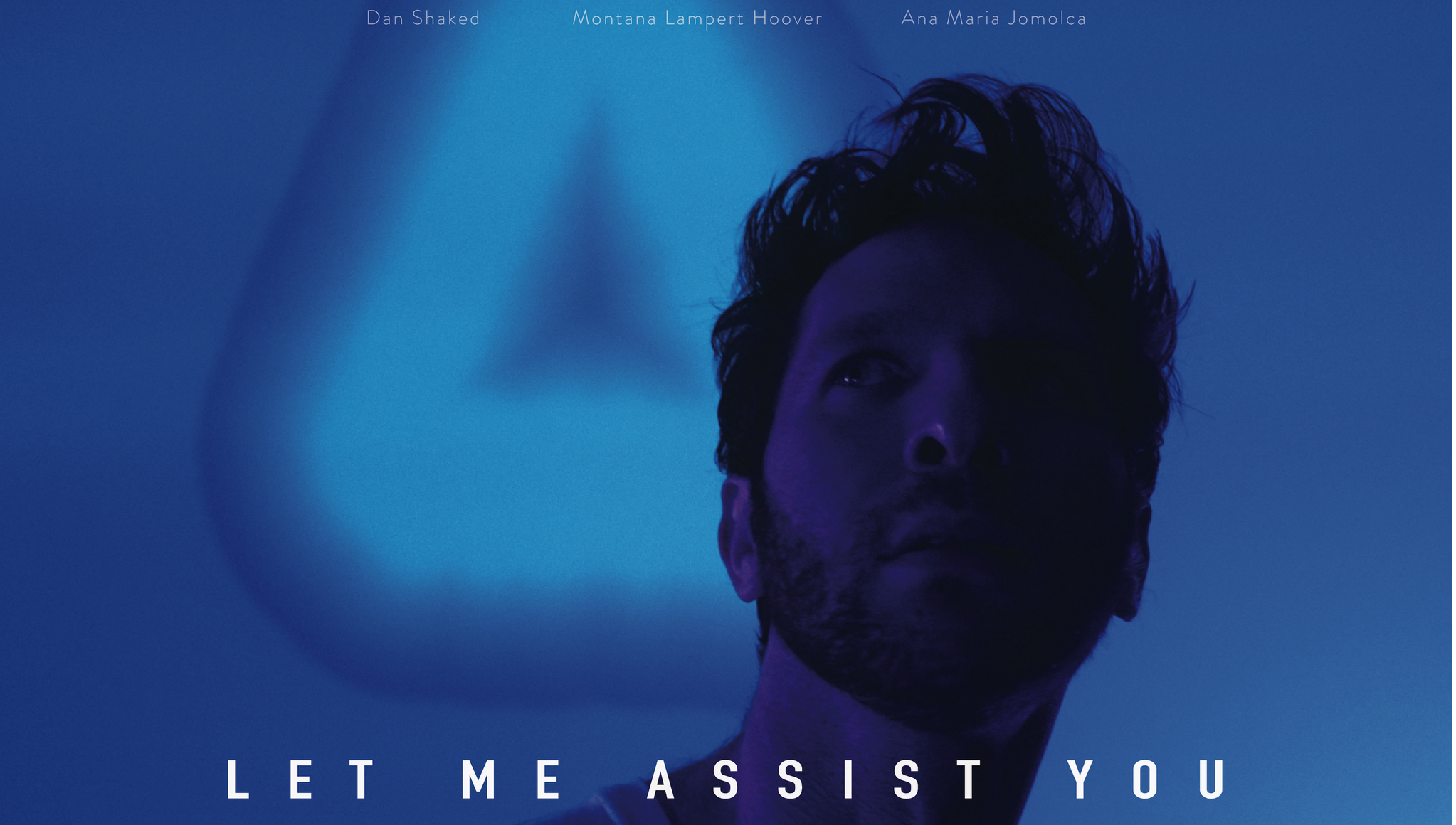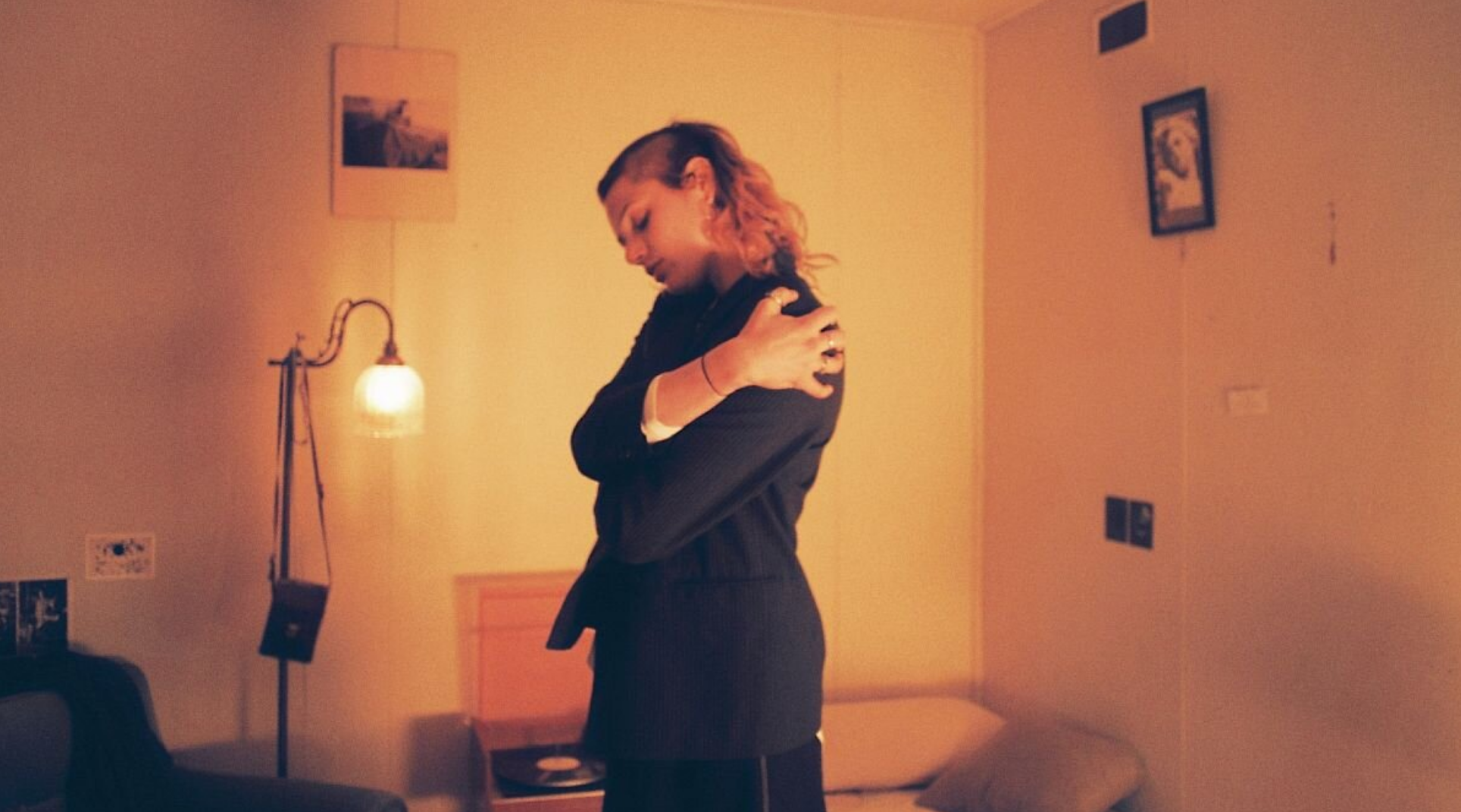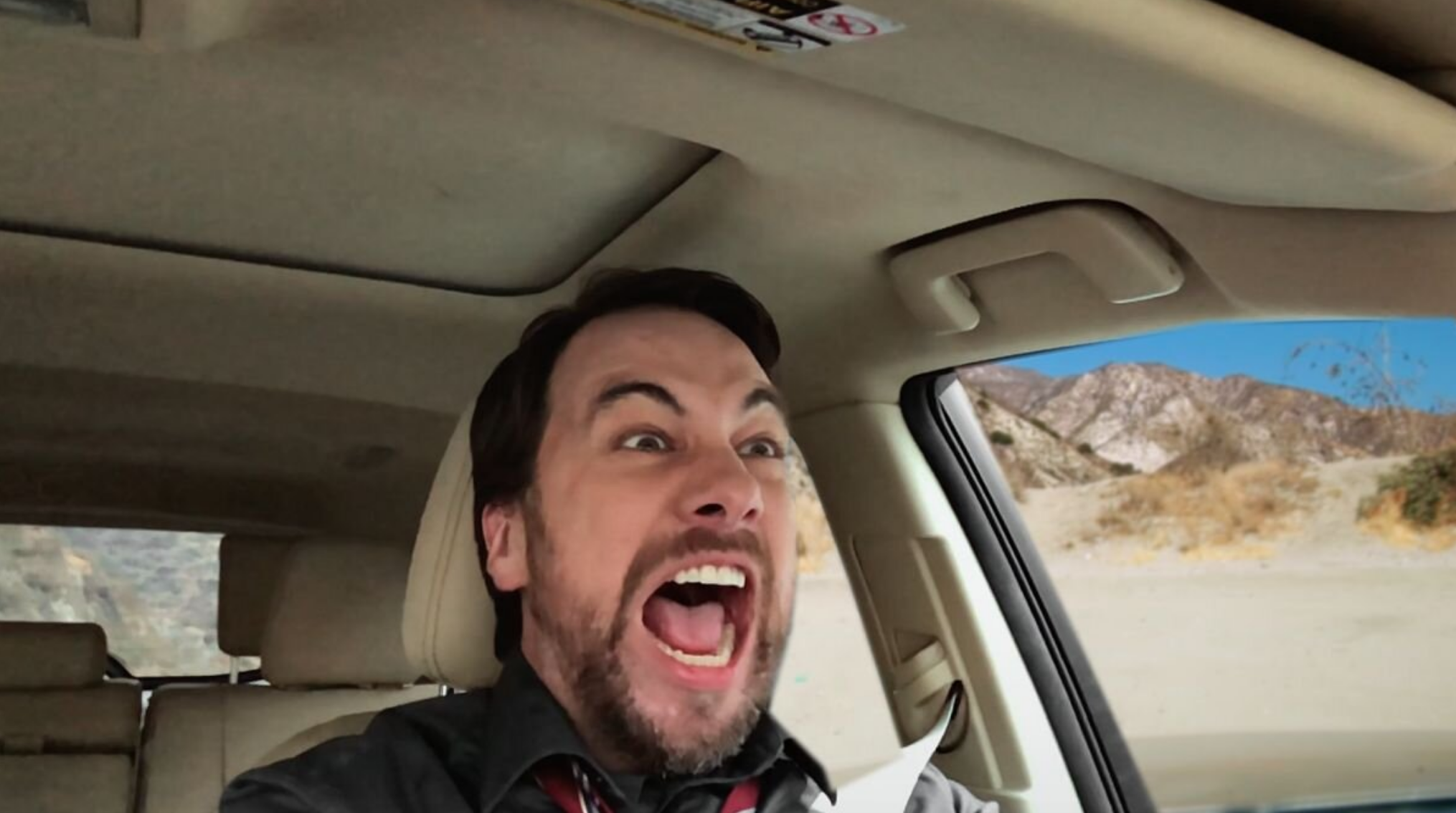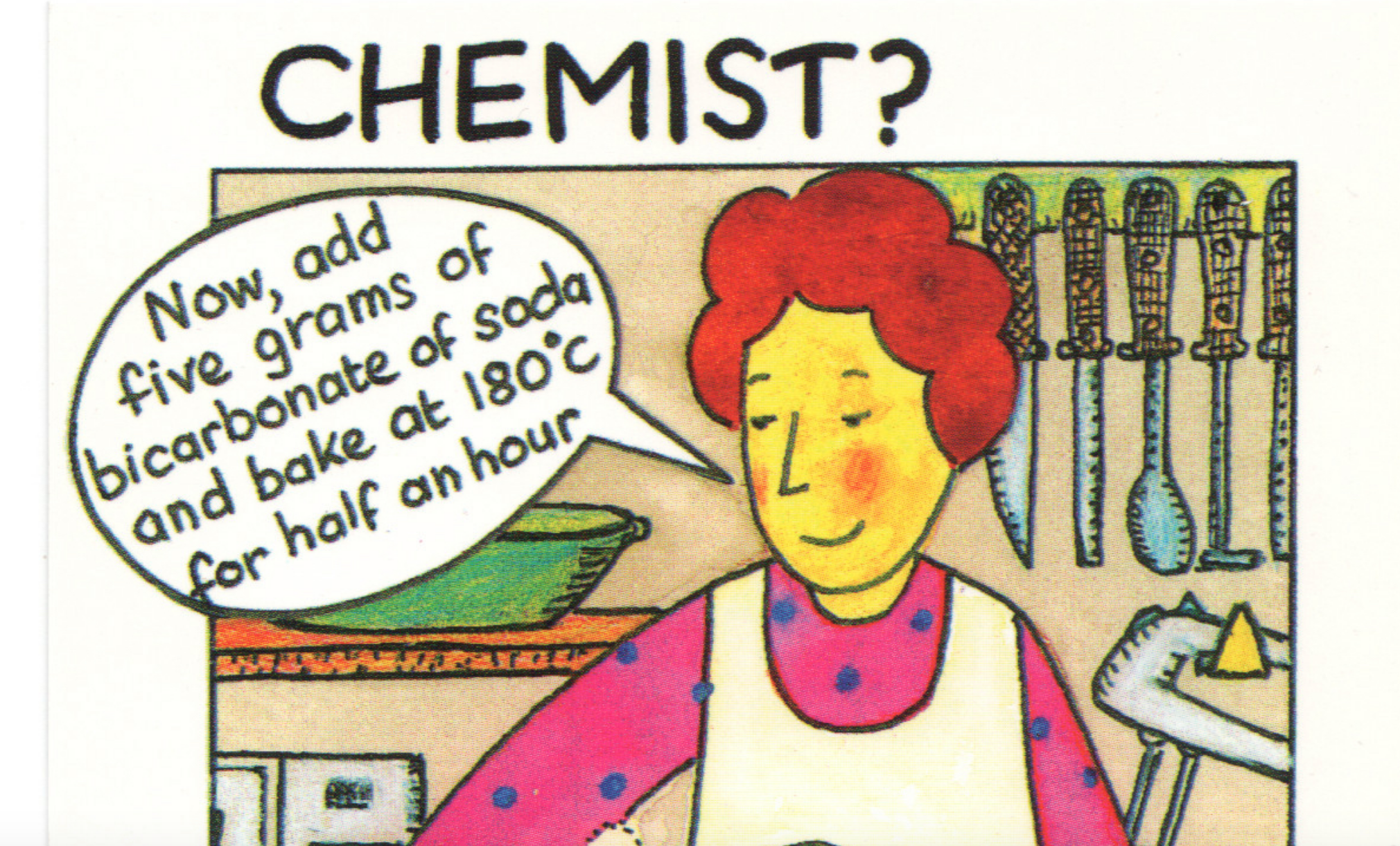3500+ Films - 2.5 million words – 1 million viewers! Founder and Curator Carmela selects some of our most entertaining, powerful and inspiring films about Technology at We Are Moving Stories. These include short and feature length documentary and drama about relationships, history - and real-life stories.
Total length of this section: 25 films.
<RELATIONSHIPS>
Alexa - A girl is haunted by a demon that lives within her technology. Length: 4 minutes 7 seconds. Writer/Director Nicole Martin:
“I have a close friend who lives in a house we believe to be haunted, and she experienced something terrifying. I loved the story so much, so I used it as inspiration to write Alexa. I find horror movies are even scarier when based on a true story. Personally, I believe there is a world beyond the one we know. Technology has become a tool to speak to what we consider “the spirit world,” and sometimes we end up in contact unintentionally. I thought it would be interesting to portray an accidental connection through a common device in households.”
Let Me Assist You - After an absolutely devastating breakup, a man’s AI virtual assistant tries to take over as his fitness and wellness coach. Length: 8 minutes 30 seconds. Editor/Writer/Director Noam Argov:
“I often think the best laughter comes when we can laugh at ourselves, and I love poking fun at the health-tech craze and all of these apps we now have to make us the best and healthiest humans. It’s especially fun to watch a flawed character (who messed up) go through this journey because he’s such a fun specimen for the ideals of tech utopianism. At the end of the day, I just hope the film makes you laugh and feel something.”
Lia IRL - A young boy with learning difficulties befriends a voice-activated AI assistant that unknowingly prepares him for the real challenges of life. Length: 14:14 minutes. Writer/Director Milda Baginskaitė:
“Lia IRL draws inspiration from a genuine incident where a young boy with learning difficulties mistook a voice-controlled phone assistant for a real person. Drawing from some of my own experiences and the diverse personalities of my students, I wanted to create a film that showcases the emotional depth and the transformative journey children undertake as they learn to communicate and connect.”
The Computer Cube - A man struggling to finish some work inadvertently gives his computer sentience. Length: 3 minutes 7 seconds. Writer/Producer/Actor Anna Rubanovaa:
“Production-wise, we wanted to experiment with different animation styles including stop-motion and motion capture. And we just love working with each other and this was a great opportunity to do that.”
Reset - A female android discovers she has feelings for her owner and must put her life on the line to gain a human connection. Length: 16 minutes. Director Jeremy Lutter:
“Two major themes of the film are consciousness and objectification. At what point do the experiences of someone, or in this case, something, matter. If we get to a point where machines want or feel, whether because they’re designed to or as an unintended by-product, how will we justify our experience of the world above theirs? And on a human level, how is it that people are able to use and discard each other so easily?”
808 - In a near-future world saturated by technology, Mars meets Jay, a young man desensitised by his profession. When Mars introduces Jay to a world outside their company's confines, they begin a journey from fear to love. Length: 12 minutes 50 seconds. Writer/Director/Editor Athina Wilson:
“It is a near-future romance that draws on the first stages of love in a technological era saturated by disconnection. I think we can all swing like a pendulum from disconnection to connection, fear to love in our lives. We learn and grow a lot as humans from this movement.”
Juliet - Bored with the routine? Depressed by the thought of going to bed alone every night? Juliet is the first super-competent companion robot, and she´s waiting for you! Length: 12 minutes. Director Marc-Henri Boulier:
“First of all, the film begins as a comedy, with a sense of irony, gradually adding some elements of drama. It is fully entertaining but not meaningless, reflecting on our society and the evolution of our relationship with technology…. and consumption!”
iDeal Wife - Born in the age when everyone can buy a perfect companion, will you be happier? Length: 36 minutes. Director: Sylvia Congxin Qi
“I see the film as a story about happiness and guilt, the two topics that haunt me the most. I relate to the male character Alvin in the film, because I think that the society dehumanized him into a total consumer rather than a living person and I see how he drowned into his own fascination and his lost soul.”
You Drive Me Crazy - A GPS takes revenge on a cheating husband and Glen ends up on the ride of his life! Length: 8 minutes 23 seconds. Writer/Producer Wendy Fishman:
“You Drive Me Crazy will make you laugh because you will recognize your own attachment and reliance on technology to help you through your life. And when that AI starts to “come alive” and make judgments about your actions then take it to the extreme, it’s funny but also kinda scary. It’s meant to be entertaining but, like all good science fiction, also a warning,... when we put machines in the driver’s seat allowing them to control our daily lives, we are inviting AI and those who create them to take over our very existence.”
Unforgettable - Hoping to fix a failed relationship a young woman kidnaps her ex-boyfriend and subjects him to technology that alters his memories in order to rebuild the foundation of their partnership and get their lives back on track. Length: 6 minutes 29 seconds. Writer/Director/Producer Sabrina Jaglom:
“I wanted to explore the way one woman was coping with her memories of a relationship while the breakup is fresh and she is in that period of wondering what she could have done different and wishing she could go back and fix things. I love the idea of technology as a form of wish fulfillment and wanted to touch on the way in which something as fragile as memories can affect everything.”
The Memory Shop - An elderly lady enters The Memory Shop in 2036 to relive a memory of her now demented husband through advanced technology. Length: 17 minutes 8 seconds. Director Christiaan Neu:
“What if The Memory Shop would become reality? What if we could go to that kind of shop and re-experience moments of our past? ...Everything in life is based upon memories: Who we are, how we act, what we do and so on. Memories matter and will always matter. That was the core of this film idea.”
Some of Her Parts - When future medicine allows people to live past the human body's shelf life, a young woman visits her grandmother in the hospital and is forced to question the value of immortality when you still end up in a box. Length: 10 minutes 23 seconds. Director/Co-writer Abie Sidell:
“Because Some of Her Parts hopefully encourages the audience to empathize more with people who are differently abled, and people we all know and love whose humanity is endangered by our society’s avarice. My hope is that the movie can challenge the audience’s assumptions about what it means to be human, because in the strangeness of this digital postmodern age, those assumptions should be thrown into question.”
The Helping Hand - From the Academy Award-winning team behind Curfew, The Helping Hand explores the ties between technology and a growing family. With a new baby at home, young parents adopt a hi-tech monitoring system. Will it be an answer to their woes or have they invited a monster into their home? Length: 10 minutes 15 seconds. Writer/Director Brenden Hubbard:
“The film has been well received and shown at close to 70 film festivals. The general consensus is that it is a creepy and unsettling idea that is rooted in the near future.”
Tech, Support - Amanda is just trying to get the internet working but hits a roadblock in the form of a sexist IT support worker on the phone. Length: 6 minutes 31 seconds. Writer/Director/Producer/Editor Nic Barker:
“We like to think Tech, Support is a film that not only makes you laugh but also starts a conversation. I’ve always loved cringe comedies in film and TV, such as the work of Ricky Gervais and Larry David, but we also feel like we wanted to address the ways men try to subtly marginalise women in everyday situations, and call that out.”
<HISTORY>
Who You Are - The accidental invention of an asshole AI spells trouble for a tech startup in the late 80’s. Length: 4 minutes 45 seconds. Director Joel Jay Blacker:
“With the constant talk and threat of the future of AI, we thought it would be funny to take an opposite approach to questions of morality and singularity. We’re all so confident that the end is nigh when talking about technology, but what if an AI was just as depressed and cynical as us? The show is about three creators of what they believe is the future of tech. Instead, it’s just another headache.”
Did I Say Hairdressing? I Meant Astrophysics - Difficult, dangerous, dirty and damaging to the environment? That's what science, engineering and technology are like. Or so outsiders tend to think - particularly women and girls. And Zod, great man of science, would confirm their worst suspicions. But Zod's daughters, and the twins, Joanne and Joseph, have other ideas. Length: 14 minutes. Directed by Leeds Animation Workshop:
“The film tells its story through subverting fairytales that bring a narrative resonance and charm of their own.
The subject is gender equality but the story also touches on environmental issues, science and technology”
Code Ruth - A true love story about a Morse code instructor finding her path during WWII. Code Ruth blends stop motion techniques and archival materials to share a family's history of connecting through technology. Length: 4 minutes. Director/Animator Caroline Voagen Nelson:
“Texting has become a predominant way to communicate - but what if all you had were dashes and dots, and actually fell in love? In various “competitions” it’s been proven it’s still faster to Morse code than to text. What can we learn from past technologies of communication?”
<REAL-LIFE STORIES>
Bias - challenges us to confront our hidden biases and understand what we risk when we follow our gut. Through exposing her own biases, award-winning documentary filmmaker Robin Hauser (CODE: Debugging the Gender Gap, Running for Jim) highlights the nature of implicit bias, the grip it holds on our social and professional lives, and what it will take to induce change. Length: 1 hour 28 minutes. Director Robin Hauser:
“While making and screening CODE: Debugging the Gender Gap, I spent two years travelling the globe talking to people about the lack of diversity in tech. When I spoke with experts and audiences, one term kept surfacing: unconscious bias. Unconscious - or implicit - bias, I was told, is the underlying precursor to many of the “isms” that plague our society: sexism, racism, ageism... And what’s more, we all have it.”
Detected - Cancer survivor Melanie Griffith tells the story of a device intended to save the lives of millions of women: a bra that detects breast cancer. Length: 15 minutes. Director/Producer Seth Kramer:
“Breast cancer is one of the leading killers of women worldwide. Technology used to detect the disease often finds it too late. Our documentary short offers an inside look at one man’s quest to create the world’s first cancer detecting bra, using Internet technology to spot the disease earlier, cheaper, and more accurately. It takes viewers inside the highly secretive world of IT development, which is largely hidden from public view. It’s a must watch if you want to understand where new technology is leading us.”
Hope Frozen - A Thai-Buddhist couple struggles to find closure after cryopreserving their two-year-old daughter - all while their whiz kid teenage son goes on a journey to discover if science will ever revive her. Length: 1 hour 15 minutes. Director/Producer Pailin Wedel:
“I want people to think about the universal theme of how technology is now blurring the very meaning of life and death. I’m not in any way saying that this particular technique — cryopreservation — will bring people back to life. But tech giants are spending a lot of money on radical life extension. Defeating death could be humanity’s biggest endeavor in the 21st century. And it may totally fail. But it’s being attempted. How will humans change during this pursuit? I want viewers to personally reflect on this. What are the societal repercussions?”
BEEP: A Documentary History of Game Sound: From Sound Chips to the Symphony! Length: (Festival Cut) 1 hour 14 minutes. Director Karen Collins:
“Video game sound to me is a fascinating history that blends creativity with technological constraint. Even when we move beyond technological constraints, there are many challenges that remain to do with creating non-linear music for games. It’s a whole different way of thinking about music where instead of simply moving from A to B, you move from A to D to C to F to X and so on. I’ve been fascinated by this challenge for over a decade.
But to me, the real reason for making the film was to pay homage to the people who made all the sounds that I’ve had stuck in my head my whole life! I wanted to get to know these people, find out what they did and how and why, and share that history with other people who might be curious about all those “beeps and boops”.”
On the Horizon - With an abundance of hot, sunny days, Alabama has an incredible solar resource. Learn about Alabama's vast solar potential and the impediments and policy barriers that are holding back its solar success. Length: 14 minutes. Writer/Director/Producer Lauren Musgrove:
“You’ll learn how science, the economy, and politics work together to inform the emerging technology of solar power. On the Horizon draws attention to an exciting time in our quest for a more sustainable Earth, as well as some of the barriers that can get in the way of that. Plus, it was fully shot and created in the state of Alabama, which is an underrepresented state in the world of film, in my opinion, and it is an incredibly beautiful state full of incredible people.”
Phantom Parrot - A human rights activist is prosecuted under terror laws for refusing to hand over the passwords to his electronic devices during a border stop, unveiling unsettling questions about the rule of law, modern espionage and digital privacy. Length: 1 hour 25 minutes 37 seconds. Director Kate Stonehill:
“We’ve screened the film to sold-out audiences who’ve stayed behind long after the allocated Q&A time to ask more questions, such as how policing can evolve in a way that doesn’t invade our privacy. People tend to be outraged and shocked at the particular use of the law that the film highlights. They often use words like ‘disturbing,’ ‘terrifying’ and ‘troubling.’”
A Billion Lives - The truth about vaping, government failure, and the battle for a billion lives. Length: 95 minutes.
“When I found out that the UN’s World Health Organization projected that a billion people will die this century from smoking, I wanted to learn more about this subject. I used to be one of the misinformed people that thought vapor technology was worse than smoking, and it was shocking to learn how much safer and more effective it has been for millions of people around the world to quit smoking. When I found out that money and corruption were a big part of this deception, I knew we had to make a film about it.”
The Longest Goodbye - Social isolation affects millions of people, even Mars-bound astronauts. A savvy NASA psychologist is tasked with protecting these daring explorers. Director Ido Mizrahy:
“I would really like to help dismantle the stigma associated with mental support. To see astronauts receiving ongoing psychological support while in space, and opening up about the need for it, is a monumental boost to dispelling the notion that psychological support is something to hide.”
























